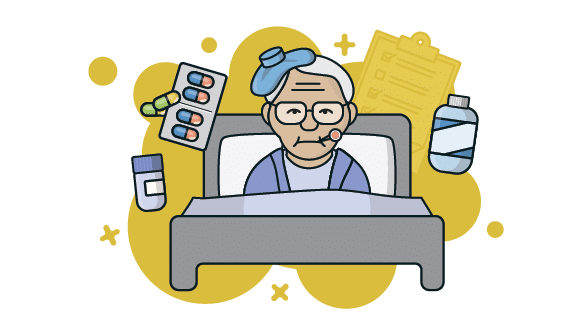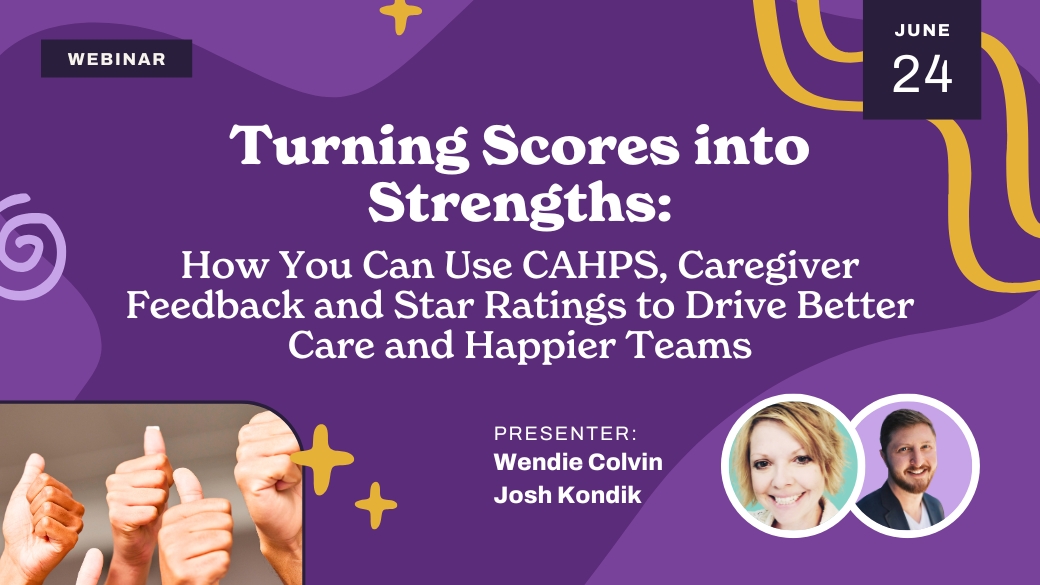Senior Cold Care Tips

The cold and flu season is right around the corner. Here’s what you can do to make sure your caregiver team is prepared.
Not only is it that time of year again – where the coughs and runny noses are wreaking havoc – but COVID-19 is still out and about with the risk of serious symptoms. As a caregiver, you already know how to prevent your client from getting sick by you, especially with all the extra precautions and training taking place during COVID-19.
It’s important to remember that your client can still catch a common cold or the flu from other areas like family members, visitors, and children. When senior citizens get the cold or the flu, it can cause serious issues with some serious consequences. When we age, our immune systems aren’t as strong as they once were. It doesn’t affect the elderly in the same way it affects the younger crowd. Adults over the age of 65 have an increased risk of being hospitalized or even dying due to the flu.
Most of these tips are already the same as you’ve been practicing throughout the pandemic, but since COVID restrictions are winding down in many areas, it’s time to reinforce these concepts in advance of the flu season to redouble our efforts to keep seniors in our care safe.
Sometimes, even when taking these steps to prevent an illness, your client will still get sick. If your client gets an illness, make sure they are getting plenty of rest. Keep petroleum jelly on hand if they get a chapped nose and keep them comfortable. Drinking plenty of liquids may also be the key to staying well. Provide the amount of comfort you would want if you became ill.
If your client becomes ill and the symptoms worsen, suggest going to a medical professional. The flu can often turn to pneumonia in older adults.
Signs to contact a medical professional are:
As a caregiver, the last thing you want for your client is for them to fall ill. By taking these measures and precautions and keeping a watchful eye on them, you can ensure your client stays well and maybe doesn’t get sick in the first place. Remember to always contact a medical professional if your client has not shown signs of improvement in 10 days, or if their symptoms worsen.
Preventing infection should be specific to every client. Make sure you are effectively training caregivers to address individual needs while taking the correct steps to stop any possible transmission.








